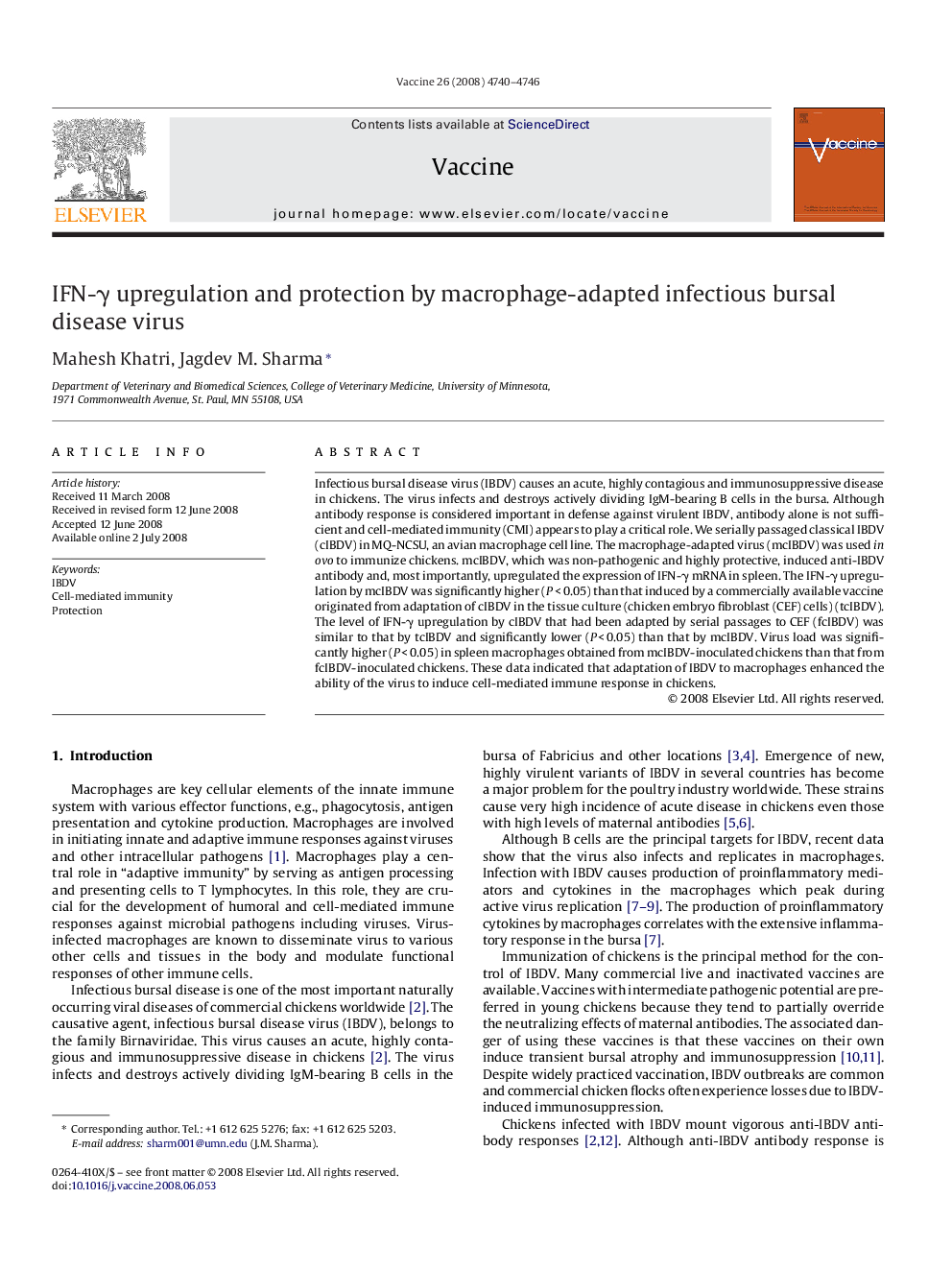| Article ID | Journal | Published Year | Pages | File Type |
|---|---|---|---|---|
| 2407256 | Vaccine | 2008 | 7 Pages |
Infectious bursal disease virus (IBDV) causes an acute, highly contagious and immunosuppressive disease in chickens. The virus infects and destroys actively dividing IgM-bearing B cells in the bursa. Although antibody response is considered important in defense against virulent IBDV, antibody alone is not sufficient and cell-mediated immunity (CMI) appears to play a critical role. We serially passaged classical IBDV (cIBDV) in MQ-NCSU, an avian macrophage cell line. The macrophage-adapted virus (mcIBDV) was used in ovo to immunize chickens. mcIBDV, which was non-pathogenic and highly protective, induced anti-IBDV antibody and, most importantly, upregulated the expression of IFN-γ mRNA in spleen. The IFN-γ upregulation by mcIBDV was significantly higher (P < 0.05) than that induced by a commercially available vaccine originated from adaptation of cIBDV in the tissue culture (chicken embryo fibroblast (CEF) cells) (tcIBDV). The level of IFN-γ upregulation by cIBDV that had been adapted by serial passages to CEF (fcIBDV) was similar to that by tcIBDV and significantly lower (P < 0.05) than that by mcIBDV. Virus load was significantly higher (P < 0.05) in spleen macrophages obtained from mcIBDV-inoculated chickens than that from fcIBDV-inoculated chickens. These data indicated that adaptation of IBDV to macrophages enhanced the ability of the virus to induce cell-mediated immune response in chickens.
